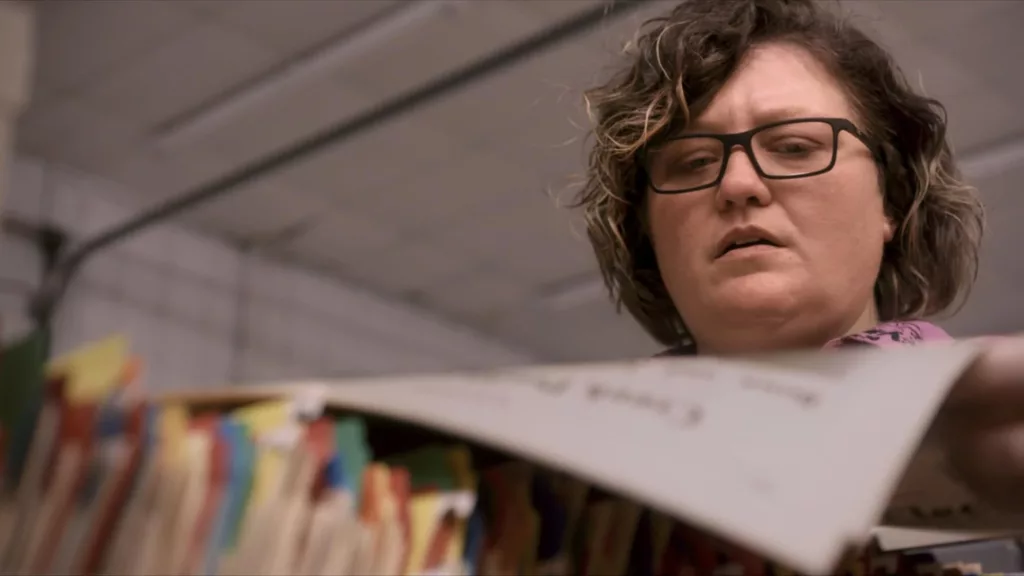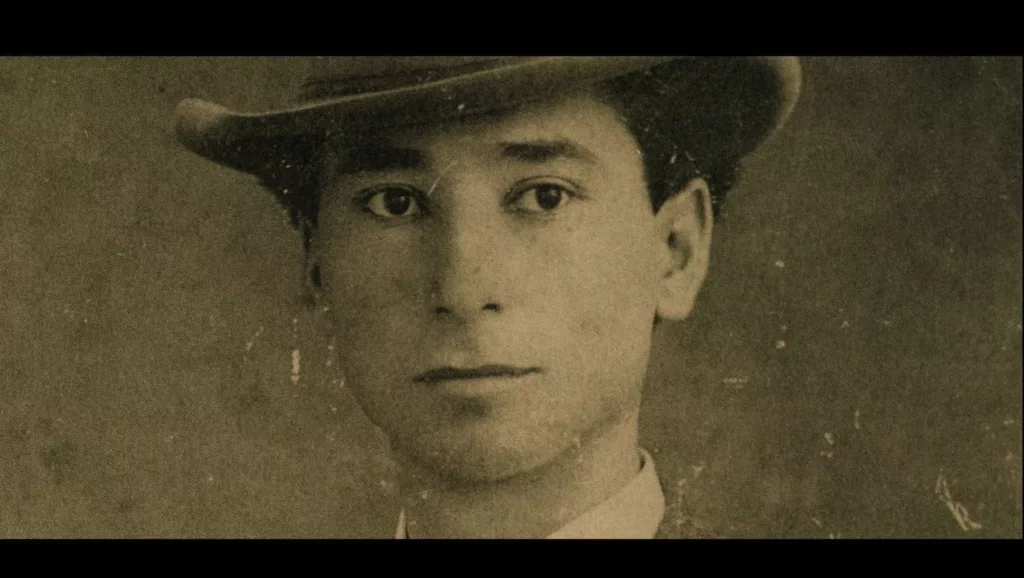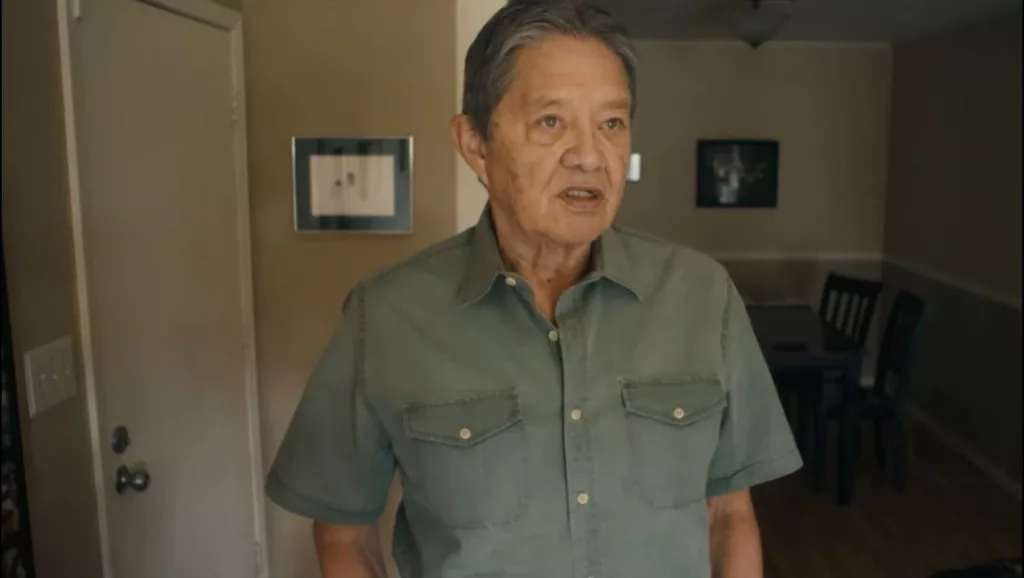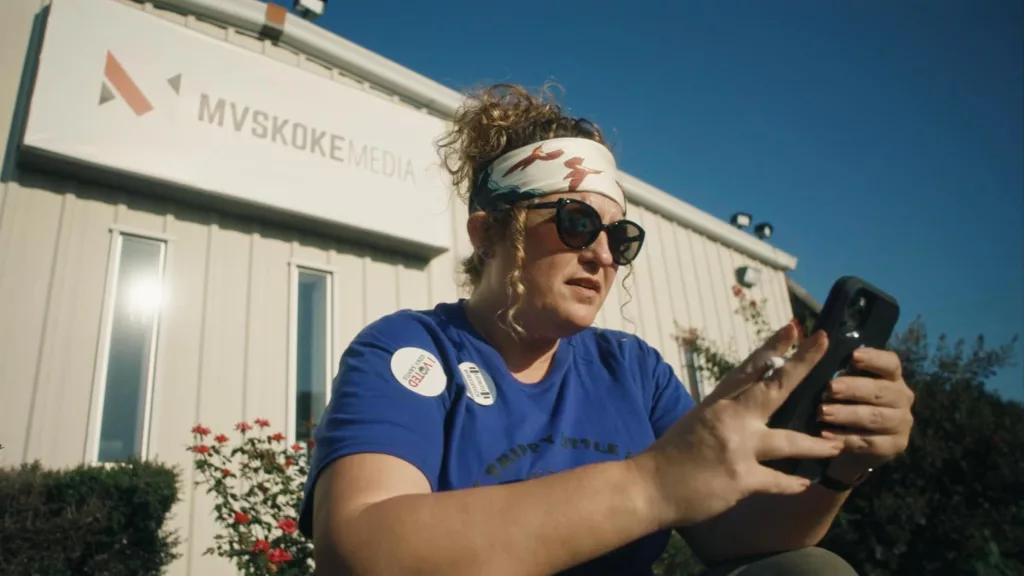Deep in the heart of Oklahoma lays the tribal lands of the Muscogee Nation, where a reporter named Angel Ellis was waging an important fight. As a journalist at Mvskoke Media, the tribe’s sole news outlet, Angel worked to inform community members about events happening around them. But when some stories challenged powerful figures, her investigations faced backlash that threatened more than just her job. It put access to accurate information for thousands of people on the line.
The new documentary “Bad Press” shines a light on Angel’s battle and the struggles facing indigenous reporters across America. Most Native tribes govern themselves separately from U.S. laws, so protections like freedom of the press aren’t automatic in their constitutions. The Muscogee Nation had passed such protections before, but in 2018, a narrow council vote took them away.
Suddenly Mvskoke Media lost control over what the public saw. Where past issues offered neutral reporting, the paper now ran only positive fluff pieces approved by leaders. It left citizens without a way to truly understand issues or hold office holders accountable. For Angel, returning the mic to communities was personal—her past investigations had cost her job before.
Picking up recording soon after, filmmakers Rebecca and Joe followed three years of Angel’s determined campaign to restore free speech for the tribe’s 90,000 members. They witness the emergence of suspicious new laws and election disruptions meant to intimidate both her and readers seeking truth. Throughout storms of misinformation, Bad Press remains steadfast in its mission to shine light on the delicate democratic rights often taken for granted worldwide, giving viewers a vivid crash course on why a free press matters most where power can too easily go unchecked.
The Reporter Fighting for Truth
The small community of Okmulgee, Oklahoma, is home to the Muscogee Nation, and it’s here we find ourselves immersed in the story that “Bad Press” shares. A passionate young reporter named Angel Ellis has put down roots working with the area’s only news source, Mvskoke Media. For years, the paper aimed to keep locals in the know through cheerful community updates. But ever since Angel started telling unvarnished accounts of important issues facing citizens, some powerbrokers haven’t been too pleased.
When her exposés on embezzlement and harassment cost Angel her job in the past, you got the sense she wasn’t one to back down from a fight. Sure enough, a few years later she’s returned to the paper with fire in her eyes, determined that people deserve straight facts no matter who finds them inconvenient. But then in 2018, tribal lawmakers take a surprising vote that threatens to silence meaningful reporting for good. With only a handful of dissenters, they repeal legal protections for press freedom.
Suddenly the media is under leadership directly appointed by the very figures Angel’s investigations targeted. Flipping through back issues reveals how the paper has transformed from a venue for varied voices to an instrument of the government line. Seeing her people cut off from truthful reporting angers Angel in a way few issues could. She knows too well that without checks, power becomes its own justification.
So begins Angel’s campaign to restore her community’s right to an independent watchdog. The film follows her tireless efforts over three years rallying citizens and navigating the minefield of politics to place media autonomy securely in the nation’s constitution. Along the way, numerous shady moves aim to undermine the vote, keeping viewers utterly gripped in Angel’s determined mission to bring accountability back from the brink.
Protecting the People’s Voice
To fully understand the importance of “bad press,” it helps to know where things stood with free expression in Native communities. Turns out protections taken for granted elsewhere weren’t so common on tribal lands. While sovereign nations can set their own rules, very few constitutionally safeguard an uncensored media watchdog for citizens.
The Muscogee Nation was one of just a handful who enshrined press liberties in law. But then in 2018, a slim legislative vote abruptly changed all that. With only some dissent, tribal leaders stripped protections and control of the community newspaper. Folks couldn’t believe their only local news source had become a mouthpiece instead of independent reporting.
This sent veteran journalist Angel Ellis into battle mode. She knew better than anyone what was at risk, having lost her job before for shining light in dark places. With the Constitution now her aim, Angel launched a grassroots movement to restore her people’s voice. It meant convincing lawmakers but also getting citizens invested in the democratic process.
Over three years, the campaign weathered many storms. Shady votes and misinformation threatened to overwhelm citizens just seeking facts. But Angel remained relentless through every twist and turn, steering debates toward sovereignty and accountability. Bit by bit, her advocacy gained ground across the tribal councils and courts of public opinion.
In the end, voters made their voices heard, righting a wrong through the same system that faltered them. Their resounding decision ensured future generations wouldn’t be left shut out of important decisions shaping their world. Thanks to one media warrior’s stand, the Muscogee people’s access to truth endured.
Dirty tricks and democracy doubts
It didn’t take long in “Bad Press” to see why free media was so vital in the Muscogee Nation. Time and again, the film exposed questionable actions by certain leaders that cried out for investigations. Whether dodging sex abuse claims or bilking funds, too many in power saw oversight as a nuisance undermining their schemes.
No episode showed this clearer than a key election commandeered by corruption. With press liberties now on the ballot, shady operators pulled out all strategic stops to sway the vote. First came laws disguising censorship as “neutrality” to mislead the public. Then ballot disruptions just suspicious enough to cast a pall yet demand benefit of the doubt.
Throughout, social channels buzzed with distortions meant to turn citizens against their own newspaper. But reporter Angel Ellis had no way to respond in kind; her tools were stripped alongside press freedoms. It left many grasping for truth in an atmosphere blurring right from wrong.
In the end, no amount of strategizing could obscure what was really at stake—people’s basic right to observe governmental workings without manipulations. As pressures mounted on communities simply seeking accountability, it became obvious some reached power precisely to avoid it.
But with democracy’s machinery in capable hands, could the will of Okmulgee residents truly find its voice? All eyes watched results roll in, hoping strained laws and disrupted proceedings hadn’t overturned the real verdict belonging to those most vested in the nation’s future.
Bearing Witness to Democracy
In telling such an impactful true story, directors Rebecca and Joe faced many choices in crafting their documentary. What approach would best put viewers inside this pivotal fight for freedoms seldom realized?
Their decision to observe simply yet profoundly rings true. Rather than impose preconceptions, the lens becomes a fly on the wall—catching candid moments that flesh citizens out as complex humans, not statistics. We watch democracy unfold organically through their eyes and ears, feeling invested in hopes and hungers so relatable.
No artificial flourishes are needed as suspense accrues naturally. Tight shots capture tense debates sparking with raw realities. Slow zooms highlight nuanced details whose import becomes clearer later on. Impactful interviews pull heartstrings with their honesty.
Steadily, anticipation mounts as election day draws near. Will corruption’s rippling effects distort results and dash dreams? All that’s left is waiting with bated breath alongside those who gave so much. Their palpable anxiety spreads to us through skills so subtle, it’s easy to forget the cameras.
In a topic where bias could sway perception, letting reality speak for itself in all its richness proves masterful. Difficult as some scenes were to witness, not intervening honors communities’ agency. Their triumph belongs to the brave citizens who made democracy’s engine run against rigging’s pulls and levers.
By keeping their role observational, Rebecca and Joe empowered observers to experience freely. It’s a reminder that bearing true witness itself becomes an art deserving acclaim.
Standing Up for Democracy
At its core, “Bad Press” tackles issues greater than any single community. While the setting may be a Native American reservation, the film resonates universally in shining light on democracy’s most basic yet brittle foundations.
Angel Ellis’ battle represents so much more than her newspaper’s plight—it’s a rallying cry to safeguard people’s right to understand their leaders’ actions. Without accountability informing the electorate, power risks becoming a license for those cunning enough to bend rules to their will.
Citizens must stay watchful against the tide of indifference slowly eroding liberties many take for granted. Freedoms fade fast once guardians drop their vigil, as the Muscogee witnessed when a single technicality silenced dissent overnight. But the flickering flame rekindles when communities unite over shared hopes instead of petty divides.
Through it all, Bad Press sustains belief that truth strengthens from the challenges facing it, like flower stems hardening their spines against howling gales. By persisting with vision, patience, and care for neighbors, the deepest democratic roots withstand whatever corrosive force seeks to uproot them. Their nourishment comes from people empowered rather than sidelined.
In capturing the real-life drama unfolding across three climactic years, filmmakers lend potent voice to those ensuring light shines in once shadowy corners. Their documentary ensures the Muscogee people’s determination won’t go darkly and quietly into history’s dense wood. Instead, their example sparks the watchfires of accountable leadership blazing brightly for all to find their way.
Fighting the Good Fight
Three years of uncertainty came down to citizens casting their ballots one final time. As Angel Ellis and her team watched results with bated breath, all their efforts to restore an independent media for the Muscogee people hung in the balance.
It seemed their marathon advocacy had been an uphill battle from the start. Time and again, powerful figures pulled out deceptive plays to protect the shadows masking their behavior. But through it all, one young reporter never lost her resolve to bring sunlight where it belonged.
Now the people had spoken, deciding whether Angel’s vision of accountability would take root, and the crooked maneuvers to sway minds met their verdict. In the end, voters cemented press protections beyond any lawmaker’s power to revoke again.
Bad Press leaves us with a reminder that even on tighter scales than national politics, power corrupts without scrutiny. Its triumph reminds how democracy sustains through engaged residents, not paternalistic figures placating anxieties with propaganda. And in its protagonist, the film finds a model for how integrity and compassion can combat the cagiest schemes of self-interest.
While its setting was a Native community, the documentary’s message echoes for all, protecting civil participation from erosion. So long as watchdogs like Angel Ellis keep speaking truth, we need not lose sight of democracy’s promise to distribute authority where it rightfully lays—with the public.
The Review
Bad Press
Bad Press tells a gripping true story about protecting citizens' access to unvarnished facts and holding leaders to account. In reporter Angel Ellis, it finds a perfect protagonist—a fierce truthteller who navigated complex political battles with bravery, integrity, and care for her community. Filmmakers Rebecca Landsberry-Baker and Joe Peeler brought immense skill to crafting an absorbing real-life thriller that educated while keeping viewers engaged to the suspenseful end. This impactful documentary shines a necessary light on issues all free societies must safeguard, as we're shown how basic rights can rapidly fray when guardians relax their vigilance.
PROS
- Gripping story of Angel Ellis' fight for press freedom in Muscogee Nation
- Timely examination of the importance of the free press and threats to transparency
- Skilled filmmaking that brought political complexities to life
- Impactful message about fragility of rights and how easily power corrupts
- Educational lessons about tribal governance and diversity in indigenous communities
CONS
- Some scenes of debate and elections became confusing with many moving pieces
- Narrative lost some clarity as it followed multiple threads over three years
- Limited context at times for less familiar viewers on tribal issues




















































Discussion about this post